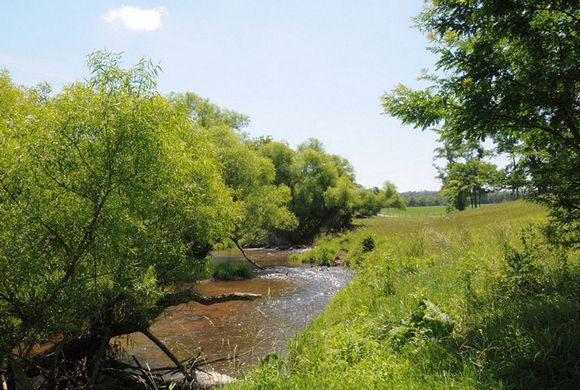Pennsylvania Farm Bureau members are urging the U.S. Environmental Protection Agency and Army Corps of Engineers to ensure that farmers can continue to rely on clear and commonsense rules governing federal regulation of waterways.
The message was delivered during recent public comment period for the agencies to solicit input on their plans to do away with the Trump administration’s 2020 rule establishing federal jurisdiction of waterways and begin the process of drafting a new rule.
PFB President Rick Ebert testified on behalf of the organization during a recent listening session hosted by the agencies. In addition, hundreds of PFB members have sent in comments by responding to a PFB Action Alert.
“It is…critical for EPA to remain objective and balanced in considering any further change to current criteria governing (federal waterways),” Ebert said. “Please actively seek input from farmers and try to understand the unique circumstances in land conditions and agricultural production that farmers around the nation face.”
In June, EPA and the Army Corps announced a two-step process for overhauling federal water regulation. First agencies are reversing the Trump administration’s 2020 Navigable Waters Protection Rule, effectively reverting back to the decades-old rule that was in place prior to the Obama administration’s 2015 Waters of the U.S. Rule. The second step is developing a new rule.
The question that the Obama, Trump, and now Biden administrations have sought to answer is how to define “waters of the U.S.” (or WOTUS), which refers to those waterways that fall under the federal government’s jurisdiction to regulate under the Clean Water Act. Farm Bureau led opposition to the 2015 WOTUS rule, which took an overly broad approach to defining federally regulated waterways and would have subjected nearly all of Pennsylvania farmland to federal water regulation. The rule was put on hold by several federal court rulings that expressed agreement with Farm Bureau’s assertion that EPA and the Army Corps overstepped its authority under the Clean Water Act. The 2020 rule was largely welcomed by agriculture as more clearly defining which waterways are subject to federal regulation.
“Last year’s changes brought some basic reasonability and common sense to the 2015 WOTUS rule,” Ebert said. “I hope and strongly recommend you not revert to the political or regulatory actions you performed during the 2015 adoption of the WOTUS rule. Any rule that treats nearly all of Pennsylvania’s land mass as part of federally regulated waterway network is senseless and unacceptable.”
The agencies are accepting comments through Sept. 3. Click here to send a message via PFB’s Action Alert.

